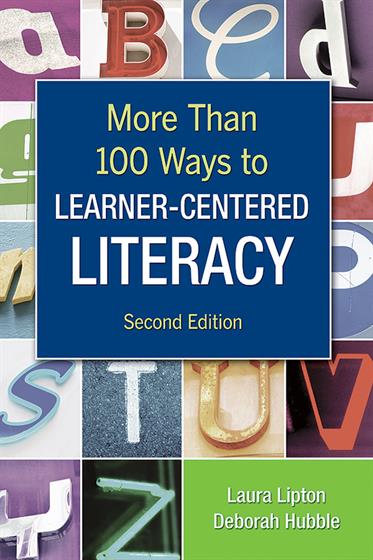Publisher's Acknowledgments
About the Authors
Introduction
Section 1. Designing a Literate Environment
Learning Language by Using It
#1 Labels, Labels, Everywhere
#2 Where in the Room Is It?
#3 Wordstrings
#4 String ‘Em Up
#5 Hang-Ups
#6 Shoe Bag Classification
#7 Word Ribbons
#8 Class Mailbox
#9 Message Center
#10 Personal Word Banks
Building on Students’ Experiences
#11 Classroom Libraries
#12 Mainly Menus
#13 Taking Off With Advertising Flyers
#14 Weekly Words
#15 The Living Bulletin Board
Establishing Literacy Work Stations
#16 Work Station Rules
#17 The Key to Knowledge
#18 Housekeeping
#19 Introducing the Writing Work Station
Section 2. Orchestrating Student Interaction
Buddy Studies: Learning in Pairs
#20 Turn to Your Neighbor and . . .
#21 Level of Learning Reading Partners
#22 Learning Partners
#23 Paired Verbal Fluency
#24 Learning Partner Biographies
#25 Summary Pairs
#26 The King and Queen of Questions
Structuring Small Groups
#27 Story Map Trios
#28 Get the Point
#29 Peer Revision: Learning Together
#30 Peer Editing: Sharing Glows and Grows
Reading Conference: Flexible Student Grouping
#31 Establishing the Climate
#32 Student Preparation
#33 Temperature Checking
#34 Developing the Format
#35 Flexible Groupings
#36 One-on-One
Section 3. Developing Fluent Comprehension
Developing Skills by Increasing Fluency
#37 Choosing and Using Predictable Text
#38 Innovations on Text
#39 Toot! Toot!
#40 Radio Reading
#41 Say It Like the Character
#42 Reader’s Theater
#43 Partners Predict
#44 Opin
#45 Word Splash
#46 Say Something
Extending the Reading Experience
#47 Figures of Speech
#48 Create a Comic
#49 Finding Common Ground
Integrating Instruction
#50 Student-Selected Theme Topics
#51 Civic Projects
#52 Imagine If You Were ...
Section 4. Nurturing Lifelong Learners
Routines for Reading to, With, and by Children
#53 Read-Alouds
#54 Familiarity Breeds Confidence
#55 We Are Readers: A Class Record
#56 Sustained Silent Reading
#57 Guided Reading
Writing Centers: Reading/Writing Connection
#58 Readers/Writers Workshop
#59 Purposeful Tasks
#60 Published and Unpublished Work
#61 Paths to Publication
Building a Community of Learners
#62 Literature Clubs
#63 Join the Chorus
#64 Mine, Yours, and Ours
#65 Writing Autobiographies
Section 5. Assessing Student Growth
Kid-Watching in the Classroom
#66 Anecdotal Records
#67 A Nifty Notebook
#68 Sticky Helpers
#69 Individual Student Checklists
#70 Class Checklists
#71 Historical Checklists
#72 Interviews
#73 Open-Ended Questions
Student Portfolios
#74 Crate ‘Em Up!
#75 Bulky Bundles
#76 Portfolio Contents
#78 Portfolio-Prompted Planning
#79 Entry Slips
#80 Autobiographies of Work
#81 Biographies of Work
Exhibitions and Performance Tasks
#81 Building in Authenticity
#82 Anchors and Archetypes
#83 Developing a Rubric
#84 Exciting Exhibitions
Section 6. Leading Learning-Focused Conversations: Strategies for Professional Development
Crafting the Container: Starting, Structuring, and Sustaining Thinking
#85 Simple Stem Completions
#86 T-chart Opposites
#87 3-2-1
#88 Mindful Memorandum
#89 Brainstorm and Pass
#90 Problem-Solving Partnerships
#91 Going Graphic
Learning-Focused Consultation
#92 An Idea Menu
#93 Make Your Thinking Transparent
#94 Patterned Response: What, Why, How
#95 The Big Idea
#96 Categorically Speaking
#97 Sharing Causal Theories
Inviting Thinking: A Sampler of Questions for Literacy Coaching
#98 Questions for Planning
#99 Questions for Reflecting
#100 Questions to Stimulate Discussion
#101 Metaphor and Invention
Resources
Index




